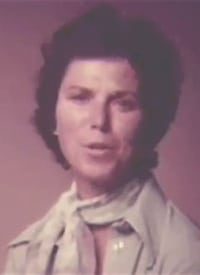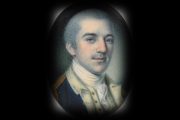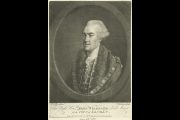
Ellen McCormack, a two-time presidential candidate who was drawn into the race because of her pro-life beliefs, has died at 84. McCormack’s son John recalled that his mother was first prompted to enter the pro-life movement when she was pregnant with him and suffered from a serious heart ailment. “The doctors were recommending that she have an abortion and she refused, and that was her inspiration to enter that cause,” he told the New York Daily News.
Living on Long Island with her husband Francis, an inspector with the New York Police Department, and their family, McCormack, a committed Roman Catholic, found herself drawn into the pro-life cause after abortion was legalized in New York State in 1970. She told the New York Times in 1976 that after seeing slides of aborted babies she became “convinced it was a human life being taken.”
After joining the Pro-Life Action Committee, McCormack made her first presidential run as a Democrat in 1976 and wound up on the ballots of 18 states, garnering more than 200,000 votes and becoming the first female presidential candidate to qualify for federal matching funds, as well as Secret Service protection. “It was a real grassroots movement,” her son recalled.
The Times quoted Eagle Forum founder Phyllis Schlafly, another pro-life leader in the 1970s, as saying that McCormack had played “a major role in the pro-life movement.” Recalled Schlafly, “Her leadership enabled the then-young pro-life movement to flex its muscles and demonstrate political courage, determination, and perseverance.”
The Times recalled that “McCormack initially ran for the presidency to help focus national attention on abortion after the 1973 Supreme Court decision recognizing women’s right to the procedure. Her television commercials, partly paid for with federal campaign money, attacked abortion as the equivalent of murder.”
During her 1976 campaign, McCormack raised $525,580 in contributions of no more than $250 each, almost all made by individuals who wanted to see an end to abortion. Those contributions made her eligible for matching federal funds totaling $247,220.37, money that was spent largely on pro-life television spots. (See video below.) That year “Mrs. McCormack won 238,000 votes in 18 Democratic primaries,” noted the Times, “and 22 delegate votes at the Democratic National Convention.”
But here success as a pro-life candidate led to accusations “that she had misused amendments to the Federal Election Campaign Act of 1971 that mandated matching money for presidential candidates,” Times reported. “Critics said the amendments, adopted in 1974, were never meant to finance single-issue campaigns.” The criticism prompted Congress to require a presidential candidate to garner more than 10 percent of the vote in two consecutive primaries in order to qualify for matching federal funds.
When McCormack ran again in 1980 as the presidential candidate of the Right to Life Party, she did not apply for matching funds. That year she qualified for the ballot in Kentucky, New Jersey, and New York, and won a respectable 32,000 votes.
In addition to campaigning for an end to abortion, McCormick was a vocal proponent of traditional family values, telling the Times during her 1976 presidential run, “The feminists have convinced politicians they represent all women. But I am a woman, too. I differ with some of their beliefs. I believe in child care for the poor, but I don’t favor child care for the middle class. I think we are teaching working mothers it is more prestigious to work than be home with their children.”
Writing on NationalReviewOnline.com, political commentator Michael New recalled that in the 1970s “the pro-life movement was very short on resources and received precious little attention from the mainstream media. As such, it was up to articulate volunteers and single-issue candidates like Ellen McCormack to keep voters informed.” He noted that McCormack’s early efforts “raised the salience of sanctity of life issues and gave countless campaign workers valuable experience…. Her steadfast devotion to the pro-life cause will be missed.”



